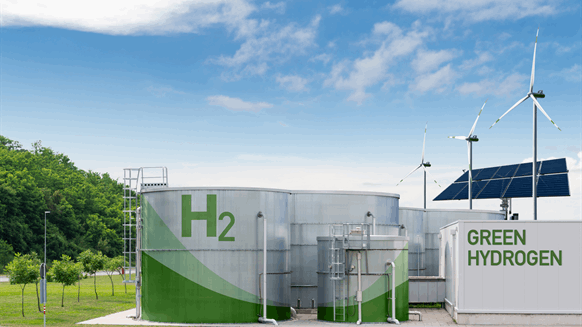European Commission Approves Major Financial Support for Renewable Hydrogen Projects
Key Ideas
- The European Commission has cleared substantial financial support packages for renewable hydrogen projects in the Netherlands and Spain, totaling over EUR 2.2 billion.
- The schemes aim to boost green hydrogen production through investments in electrolysis capacity, renewable energy-derived electricity, and storage infrastructure.
- The Netherlands targets achieving 500 MW of electrolyzer capacity by 2025 and expects the initiative to help avoid around 55 kilotons of CO2 annually until 2030.
- Additionally, European countries like Estonia, France, Germany, Italy, Slovakia, and Spain are collaborating on a EUR 1.4 billion state aid package to advance hydrogen research and development projects.
The European Commission has approved significant financial support packages for renewable hydrogen projects in the Netherlands and Spain. Spain's scheme, worth EUR 1.2 billion, aims to support green hydrogen projects with a capacity of at least 100 MW, focusing on renewable energy-derived electricity production, renewable hydrogen fuels, and storage. The Dutch initiative, valued at EUR 998 million, will back the construction of a minimum of 200 MW of electrolysis capacity, with projects required to have at least 0.5 MW of capacity. Both countries plan to allocate grants through competitive bidding processes to assist with capital costs and offer premiums over several years.
The Netherlands envisions reaching 500 MW of electrolyzer capacity by 2025 and 3-4 GW by 2030, aligning with the EU's goal of installing at least 6 GW of renewable hydrogen electrolyzers by 2024 and 40 GW by 2030. The projects are expected to help mitigate around 55 kilotons of CO2 annually until 2030, contributing to national and EU climate targets.
Moreover, the European Hydrogen Bank has awarded EUR 720 million to projects in Finland, Norway, Portugal, and Spain to scale up hydrogen production. Additionally, a EUR 1.4 billion state aid package, involving Estonia, France, Germany, Italy, Slovakia, and Spain, under the IPCEI Hy2Move program supports 11 companies and 13 innovative hydrogen technology projects. Germany also received approval for a EUR 3 billion guarantee package to develop the Hydrogen Core Network, a 9,700-kilometer transmission grid integrating existing natural gas pipelines. The project aims for completion by 2032, with the first major pipeline set to operate next year, fostering hydrogen infrastructure development across Europe.
Topics
Installation
Renewable Energy
Infrastructure Development
Financial Support
European Union
Hydrogen Technologies
Climate Targets
IPCEI
Government Assistance
Latest News
